The first time Elisabeth Loua saw the College of Staten Island’s English Language Institute (ELI) Web page, she thought it might be an Internet scam.
“I found so many universities but they were very, very expensive,” Loua recalled. “When I saw CSI’s, it wasn’t as expensive. I thought it was a joke, maybe a scam.”
Needless to say, it was not a scam. And Loua is a very satisfied customer.
“The main thing I like are the teachers,” said Loua, who grew up in Guinea and earned a Master’s degree in French at the Institute for Leadership and Communications Studies in Morocco. “They are awesome.”
Ivan Duque discovered the Institute online as well, from his home in Medellin, Colombia.
“I was searching on the Internet for places here in New York, here in Staten Island, because I have uncles who live here,” Duque recalled. “And it appears.”
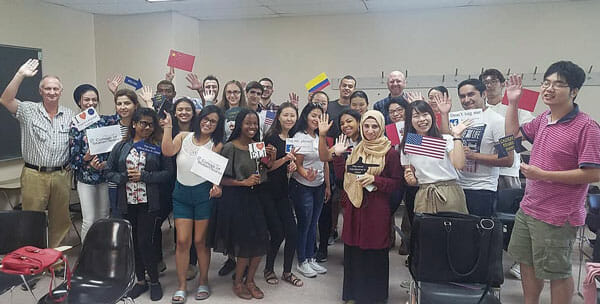
Students in the English Language Institute have arrived to CSI from 20 countries, from Afghanistan to Yemen.
As the fall semester began in September, the ELI welcomed 30 students from 20 different countries: Afghanistan, Albania, China, Colombia, Gabon, Kyrgyzstan, the Dominican Republic, Ecuador, Guatemala, Guinea, Japan, Jordan, Mexico, Pakistan, Peru, Spain, Sri Lanka, Tajikistan, Turkey, and Yemen. In November, the current students will meet 40 others from Mexico when the 100,000 Strong in the Americas Proyecta program starts at the Institute.
The students spend 18 to 22 hours each week learning English. But it’s not as grueling as that might sound, Duque and Loua said. Classes start at 9:00am each day and students spend an hour each on reading, grammar, oral communication, and studying for the Test of English as a Foreign Language (TOEFL). That schedule is broken up by a one-hour break, too.
“It’s not like you’re doing the same thing for four hours or five hours,” Loua pointed out.
The program’s approach extends beyond the classroom, too, said Gonzalo Villena, the director of the Institute.
“Students have access to all the academic activities that CSI students have, such as sports, conferences, seminars, and access to all the CSI facilities,” Villena wrote in an email. “The ELI program also organizes field trips around Staten Island, Brooklyn, and Manhattan, where students may have an academic task in a museum or a walk around Wall Street.”
Villena added that the program has attracted exceptional students.
“They are always eager to learn the language and they are self-motivated,” Villena said. “Due to the diversity of nationalities in the classroom, the great challenge is that they are forced to speak only in English with their new classmates.”
The students’ exuberance for the classes was palpable as they discussed their experiences on a recent afternoon.
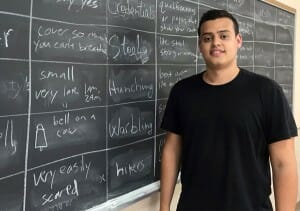
Ivan Duque of Colombia said learning English will open up more job opportunities in his chosen career of mechanical engineering.The students’ exuberance for the classes was palpable as they discussed their experiences on a recent afternoon.
“It’s very cool because in reading we have a nice book – it’s not a boring book,” Duque added.
“Every day, we have new words,” Loua continued. “There’s a quiz on Fridays on vocabulary we learned during the week.”
“We have activities – games. Even the teacher will bring a childish game and everyone is happy to do it. It’s very fun and they involve everyone.”
“Although most of our students have ‘studied’ English in their native countries, most have had little opportunity to practice what they have learned with neither their teacher nor other students,” Drew Bostinto, an ELI teacher, wrote in an email. “Part of the challenge of working with our students is to encourage everyone to participate without feeling inhibited or worried about ‘mistakes.’”
The flexibility of the Institute’s coursework is another attractive feature, the students said. Students can tailor their language learning to their needs, spending just one semester learning English, six months, one year, or even two.
“It’s a big plus to be prepared to take the TOEFL.” – Ivan Duque
Duque, for example, will return to his university in Medellin, where he is studying mechanical engineering, after a six-month course at the Institute. Loua expects to enroll in other courses beyond English as she seeks to embark on a career in international relations.
Ultimately, the students’ class work is aimed at preparing them for the TOEFL. Passing the test can open many doors. Students can take the test at the end of each term, and doing so also allows them to apply to any CUNY school for an undergraduate or graduate degree.
“It’s a big plus to be prepared to take the TOEFL,” Duque said. Noting that he is beginning his studies in Colombia in mechanical engineering, he added, “We need a second language to graduate. English is the best second language for people all over the world. I need to have job opportunities.”
“I’m used to having friends from other countries but this is the craziest ever.” – Elisabeth Loua
Loua is also studying Spanish and Portugese at another language school.
“I’m thinking of being a diplomat or working with international organizations to help countries like my country,” Loua said. “So helping (my country) improve living conditions, education – helping people” are my goals.
They described their ELI experience as beneficial in many ways beyond learning English.
“The diversity of the people is crazy,” Loua said. “I’m used to having friends from other countries but this is the craziest ever.”
“We learn a lot about the cultures, not just America, but Europe, Africa, Asia,” Duque said. “In Colombia, we aren’t as multicultural. I’m opening my mind here. This opportunity is great for me.”
“The culture is so different,” Duque continued. “New York has its own accents. It’s a little bit difficult. The most difficult part is listening and talking, because you don’t know the best way to say something, and to pronounce it. But it’s a good challenge for people who really want to learn.”
The ELI’s staff also contributes to their experience, they said.
“ELI helped me get here, to get my visa,” Duque said. “Gonzalo (Villena, ELI’s director) even called me in Colombia. That’s very, very cool. You see the interest of the people here for the students.”
The benefits extend to teachers as well, Bostinto said.
“I am inspired by their ambition and enthusiasm as they learn and use their new language,” Bostinto said. “Each day presents a learning experience not only for students, but for me as well, as I am exposed to different cultures and hear about experiences and places that are often very different than my own.”

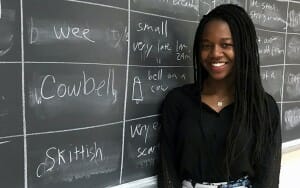
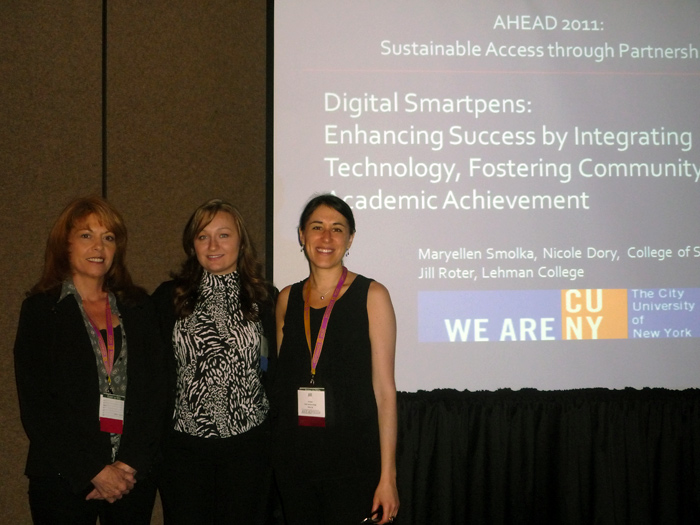
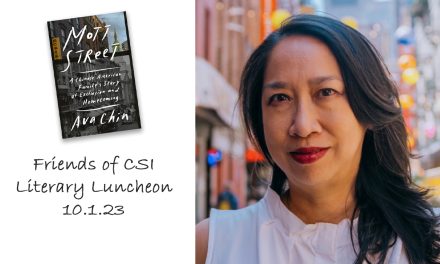
![[gallery] Fourth Annual Savor the Flavors Raises Funds for CSI Students](https://csitoday.com/wp-content/uploads/2013/04/savor-the-flavor-2013-best-dish.jpg)












